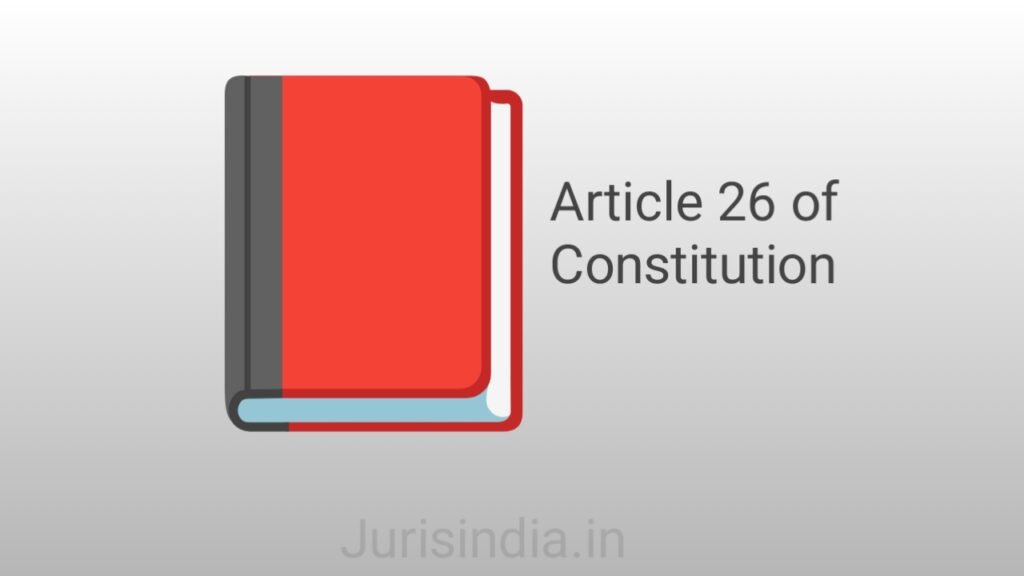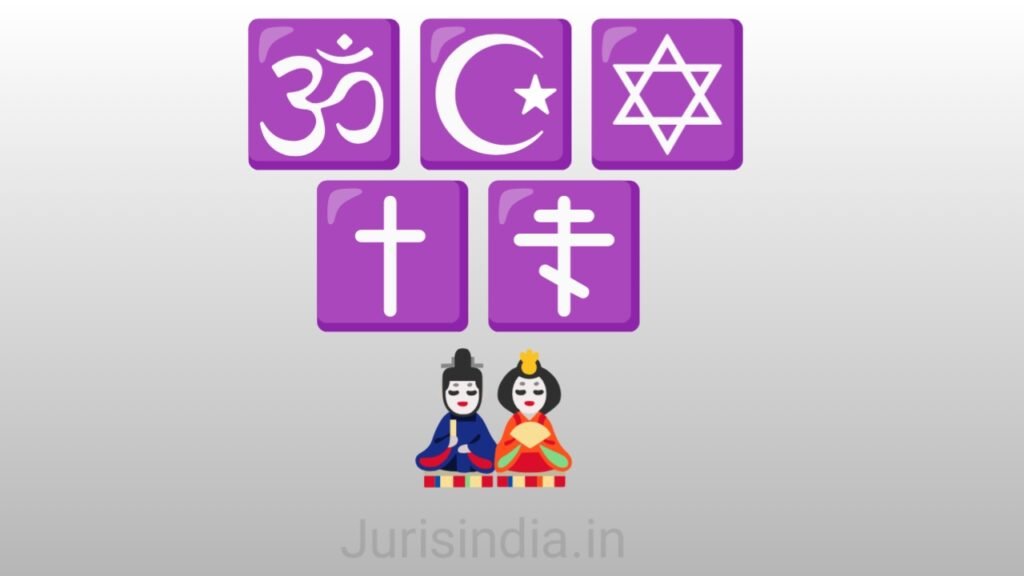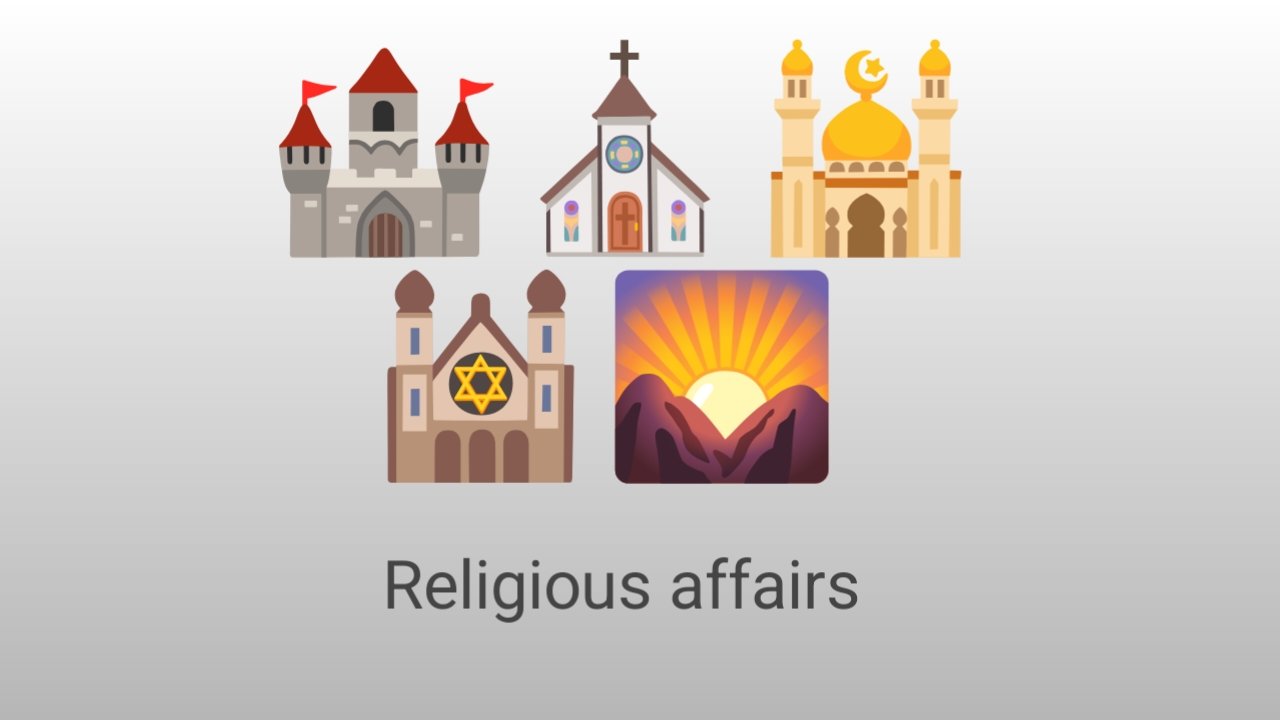Article 26 of Constitution right to manage religious affairs, The freedom to manage must under subject to public order, morality and health.
In The Kesavananda Bharati case (1973) in relation to the management of religious property. The case Kesavananda Bharati did not directly revoke any laws regarding religious property management.
The case established the “basic structure doctrine” and placed limits on the power of the Parliament to amend the Constitution.
In Case SP mittal v/s Union of India 1983 in this case SC held that religious denomination and teaching does not constitute a religion.
Condition to be religious denomination
- The Religious denomination, religious group with common faith, believe on same religion.
- Philosophy, practice same religion.
- Distinctive faith and name identity.
Arun roy v/s Union of India 2022 religious institution and education or study of religion
In this case Arun roy v/s Union of India 2022, Supreme Court said that religious very much needed in India because India is having a secularism which means to respect & practice of all religion. Secularism is basic part of constitution.
Article 26 constitution, freedom to manage religious affairs
Article 26 of the Constitution of India, states that right to freedom to manage religious affairs. The freedom to manage must be under subject to public order, morality and health.

Every religious belief or any section of religion shall have the right to establish and maintain institution for religious and charitable purposes.
Every religious denomination shall have the right to manage it’s own affairs in matter of religion.
Religious faith community shall have the right to own and acquire movable and immovable property.
The property that acquired must be administer such property in accordance with the law.
Freedom of Conscience and free profession practice and propagation of religion

Article 25 of the Constitution freedom of Conscience and free profession, practice and propagation of religion. The objectives of the Article is,
- Freedom of religion to protect harmony.
- To protect religion.
Important condition, to practice propagate profession, shall to maintain public order, morality and health.
Important case laws related to Article 25 of constitution of India
- Ismael faruqui v/s union of India 1994 supreme court.
- Right to worship is an essential part of a religion, but not every place.
- Bijoe emmanuel v/s state of kerala 1986.
- Sc said that individual have right to participate or refuse to participate in religious activities, Without disturbing peace.
- Ramesh Thaper v/s Union of India
- Sc said that freedom of speech and expression includes freedom of propagation of ideas that can only be guarantee by communication.
Ismael faruqui v/s union of India 1994 worship place case
In this case Ismael faruqui v/s union of India the Supreme Court held that the right to worship is an essential part of a religion. But the SC also held that it does not includes right to worship at any place and every place.
This case was a landmark decision that deal with stress between religious freedom and State power in India.
The freedom of Conscience and free profession, practice and propagation of religion subject to public order, morality and health.
All person are equally entitled to freedom of Conscience, freedom of freely profession, practice of religion. Freedom of all persons to propagate religion but not against public morality, order and health.
State making law in respect of religion, right to manage religious affairs
Article 25(2) state that Nothing in article 25 shall affect the operation of any existing law, or the State from making any law.
The State can makes any law regulating or restricting any economic, financial, political or other secular activity which may be associated with religious practice.
The State can make any law for social welfare and reform or for opening Hindu religious institutions of a public nature to all classes and sections of Hindus.
The Hindu shall be construed as including a reference to persons professing the Sikh, Jaina or Buddhist religion.
Various law enacted by Parliament such as The Religious Institutions (Prevention Of Misuse) Act, 1988, The Place of Worship(Special Provisions) Act, 1991.
Place of worship act 1991

This Act place of worship is to prohibit conversion of any place of worship. And to provide for the maintenance of the religious character of any place of worship. As it existed on the 15th day of August, 1947, and for matters connected therewith or incidental thereto.
Religious institution (Prevention of misuse)
This Act religious institution( Prevention of misuse) to prevent the misuse of religious institutions for political and other purposes.
Other purposes, for the promotion or propagation of any political activity. For harbouring of any person accused or convicted of an offence under any law for the time being in force.
- Storing of any arms or ammunition.
- Keeping any goods or articles in contravention of any law for the time being in force.
- Construction of basements, bunkers, towers or walls without a valid licence or permission under any law for the time being in force.
- Carrying on of any unlawful or subversive act prohibited under any law.
- Promotes or attempts to promote disharmony or feelings of enmity, hatred or ill-will between defferent religious, racial, language or regional groups or castes or communities.
Freedom of Conscience, right to manage religious affairs
The general meaning freedom of Conscience is inner sense to understand what is wrong and what is correct. The mind can distinguish between right and wrong.
In this article, the practice of religion with Conscience refers that person not following blindly the religious, if any immorality or against nature.
Practice and propagation of religion, right to manage religious affairs
Every person has freedom to practice there religion and may also propagate there religion thought but not against immorality, order and harmony, brotherhood.
Propagation is nothing but the spiritual book thoughts explanation in form of religious events and chants, Ramayan, Geeta, Quran, Bible, Gurumukh etc.

